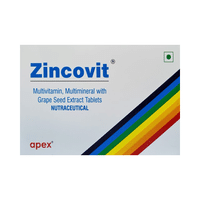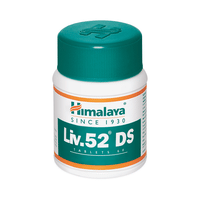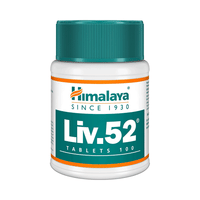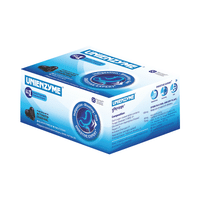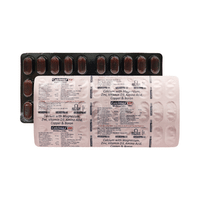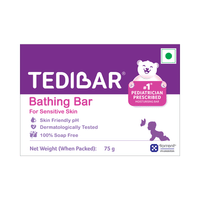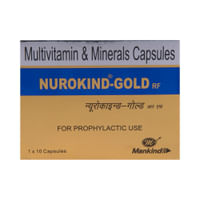Rs.608for 1 strip(s) (10 tablets each)
food interaction for Livhectin
alcohol interaction for Livhectin
pregnancy interaction for Livhectin
lactation interaction for Livhectin
food
alcohol
pregnancy
lactation
Livhectin Tablet may be taken with or without food.
None
None
CAUTION
Alcohol should be used with caution while taking Livhectin Tablet.
CAUTION
Information regarding the use of Livhectin Tablet during pregnancy is not available. Please consult your doctor.
CONSULT YOUR DOCTOR
Information regarding the use of Livhectin Tablet during breastfeeding is not available. Please consult your doctor.
CONSULT YOUR DOCTOR
SALT INFORMATION FOR Livhectin
Metadoxine(500mg)
Uses
Metadoxine is used in the treatment of alcoholic fatty liver disease.
How it works
Metadoxine is an antioxidant. It works by protecting the liver from harmful chemical substances (free radicals). It also works by increasing alcohol elimination from the blood and tissues, thus preventing liver damage.
Common side effects
Nausea, Upset stomach, Diarrhea
Silymarin(140mg)
Uses
Silymarin is used in the treatment of Chronic liver disease and liver cirrhosis.
How it works
Silymarin is obtained from milk thistle seeds (Silybum marianum). It has antioxidant and anti-inflammatory properties that protect liver cells from harmful effects of toxic chemicals (called free radicals) as well as some other medicines.
Common side effects
Back pain, Bloating, Diarrhea, Dizziness, Hair loss, Indigestion, Itching, Loss of appetite, Nausea, Rash, Stomach pain, Upset stomach
L-Ornithine L-Aspartate(150mg)
Uses
L-Ornithine L-Aspartate is used in the treatment of nutritional deficiencies and liver disease.
How it works
L-Ornithine L-Aspartate is a combination of two amino acids which works by protecting the liver from harmful chemical substances (free radicals), thus preventing liver damage.
Common side effects
Injection site reactions (pain, swelling, redness)
Vitamin B6 (Pyridoxine)(3mg)
Uses
Vitamin B6 (Pyridoxine) is used in the treatment of nutritional deficiencies.
How it works
Vitamin B6 (Pyridoxine) provides essential nutrients.
Common side effects
Burning sensation, Tightness sensation, Headache, Nausea, Sleepiness, Upset stomach, Paresthesia (tingling or pricking sensation)
Folic Acid(1.5mg)
Uses
Folic Acid is used in the treatment of anemia due to chronic kidney disease, iron deficiency anemia and anemia due to folic acid deficiency.
How it works
Folic Acid is a form of vitamin B. It plays a vital role in the formation of red blood cells, which carry oxygen throughout the body. It is also essential in pregnancy due to its role in the development of the unborn baby's brain and spinal cord.
Common side effects
No common side effects seen
SUBSTITUTES FOR Livhectin
10 Substitutes
10 Substitutes
Sorted By
 Rs. 299.99save 52% more per Tablet
Rs. 299.99save 52% more per Tablet Rs. 365.60save 40% more per Tablet
Rs. 365.60save 40% more per Tablet Rs. 270.93save 56% more per Tablet
Rs. 270.93save 56% more per Tablet Rs. 235.10save 61% more per Tablet
Rs. 235.10save 61% more per Tablet Rs. 276.56save 55% more per Tablet
Rs. 276.56save 55% more per Tablet
Expert advice FOR Livhectin
- It protects the liver cells from toxins and helps the liver to perform its normal functions.
- Take it as per dose and duration suggested by your doctor.
- Diarrhea may occur as a side effect. Drink plenty of fluids and inform your doctor if diarrhea persists or if you find blood in your stools.
- Consult with your doctor if you are pregnant, planning pregnancy or breastfeeding.
- It protects the liver cells from toxins and helps the liver to perform its normal functions.
- It should preferably be taken after meals. One of the doses should always be taken after your evening meal.
- Diarrhea may occur as a side effect. Drink plenty of fluids and inform your doctor if diarrhea persists or if you find blood in your stools.
- Do not take antacids that contain aluminum while you are taking Metadoxine as this decreases the amount of Metadoxine absorbed by your body.
- Consult with your doctor if you are pregnant, planning pregnancy or breastfeeding.
Frequently asked questions FOR Livhectin
Metadoxine
Q. What is Metadoxine? What is it used for?
Metadoxine belongs to a class of medicines known as hepatoprotective medicines which means that they protect the liver. It is used to treat chronic and acute alcohol intoxication. Metadoxine accelerates alcohol clearance from the blood and therefore, also helps in the treatment of fatty liver due to alcoholism.
Q. How does Metadoxine work?
Metadoxine works by increasing the rate of alcohol clearance from blood and tissues, which leads to faster recovery from alcohol intoxication. This in long term protects the liver from damage against harmful chemicals known as free radicals, thereby improving overall health of the liver.
Q. How to use Metadoxine?
Metadoxine may be taken with or without food as prescribed by the doctor. Take it in the dose and duration advised by the doctor. Swallow the tablet whole; do not crush, break or chew. The dose will depend on the condition you are being treated for and your total body weight. It is advised to follow your doctor’s instructions carefully to get maximum benefit of Metadoxine.
Silymarin
Q. What is Silymarin? What is it used for?
Silymarin belongs to a class of medicines known as hepatoprotective medicines which means that they protect the liver. It is used to treat chronic (long-standing) liver diseases. It is also used to treat severe cases of liver disease known as cirrhosis of the liver. Silymarin accelerates alcohol clearance from the blood and therefore also helps in the treatment of fatty liver due to alcoholism.
Q. How does Silymarin work for the liver?
Silymarin is obtained from milk thistle seed (Silybum marianum). Silymarin works by increasing the process of alcohol elimination from blood and tissues. This provides faster recovery from alcohol intoxication and as a result protects the liver from damage against harmful chemicals known as free radicals. Thereby, it helps to improve overall health of the liver.
Q. How to use Silymarin?
Silymarin should be taken with food. Take it in the dose and duration advised by the doctor. The dose will depend on the condition you are being treated for and your total body weight. It is advised to follow your doctor’s instructions carefully to get the maximum benefit of Silymarin.
L-Ornithine L-Aspartate
Q. Is it ok to take alcohol when taking L-Ornithine L-Aspartate?
No, it is not recommended to take alcohol when on L-Ornithine L-Aspartate. It is a medicine given in cases of liver failure. Although, there are no reported interaction. Still, in cases of liver failure, alcohol should be avoided as it could worsen your complication of liver disease.
Q. What is L-Ornithine L-Aspartate?
L-Ornithine L-Aspartate is made up of two amino acids. It is most commonly used in cases of liver diseases in order to prevent it from abnormal brain function called hepatic encephalopathy.
Q. Is it safe to give L-Ornithine L-Aspartate to pregnant or lactating women?
L-Ornithine L-Aspartate is not recommended for use in pregnant or breastfeeding women unless absolutely necessary. It is advised that if your doctor prescribes you this medicine then you must discuss all the risks and benefits associated with this medicine.
Vitamin B6 (Pyridoxine)
Folic Acid
Q. Is it ok to take Folic Acid when not pregnant?
Usually, folic acid requirements are met from the diet and therefore additional supplements are not required. In general, Folic Acid is recommended only when you have a deficiency of folic acid. However, Folic Acid is advised to women who are pregnant and who want to conceive. The medicine should be taken at least 4 weeks before pregnancy and should continue its use up to 3 months of pregnancy. Consult your doctor if not sure.
Q. Can Folic Acid cause weight gain?
Animal studies on Folic Acid suggest that taking the medicine in excess along with a high-fat diet may lead to weight gain and fat accumulation. But this weight gain was not evident when taken along with a normal or low-fat diet, even with excess Folic Acid. In humans, similar studies have not been conducted and therefore knowledge regarding weight gain is lacking. Therefore, if you are on Folic Acid eat a low-fat meal to be on the safer side.
Q. How long does Folic Acid take to work?
Folic Acid usually starts working within a few hours of taking it. If you are taking it for iron deficiency anemia, you may start feeling better after a few weeks of taking it. In case you are taking it during pregnancy, you may not notice any difference but this does not mean that the dose is not working. Continue taking Folic Acid for the duration recommended by your doctor.















